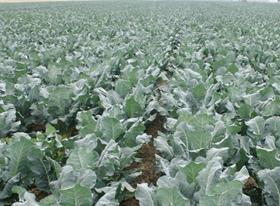
A new research programme has been launched which will look into how to improve the natural defence system of plants.
The programme, which is a collaboration between the James Hutton Institute and Scotland's Rural College (SRUC), will assess the impact of plant defence elicitors on a variety of brassica crops in a bid to find organic ways to reduce crop diseases. Elicitors are compounds which release a natural defence mechanism to disease.
The two-year project, which is funded by the Horticultural Development Council, will analyse whether elicitors can be used effectively on a wider range of fruit and vegetable crops.
“Resistance elicitors offer great potential for reducing disease in integrated management systems and reducing the use of conventional pesticides at the same time,' said professor Adrian Newton, cereal pathologist at the James Hutton Institute.
Newton says the research could help to eliminate the need to use several conventional pesticides. He added:'We are using knowledge from our fundamental molecular studies of plant defence mechanisms and applying them to practical problems that growers are having trying to control diseases. This is exciting and very timely work, as many of our conventional pesticides are being removed from the market.”
Meanwhile, professor Dale Walter of SRUC's crop protection team hopes that the research will help to offer stronger crop resistance to brassica diseases such as light leaf spot and says that utilising elicitors fully could provide a breakthrough for growers.
He said:“Plants have always had their own complex defence mechanisms which, over time, have, in a way, switched off. However, these traits are still there. By activating the correct pathways in the plants we can awaken a broad range of natural plant defences.
'The mechanisms can include strengthening cell walls, putting up physical barriers to the invading organism, or releasing toxic chemicals which damage and kill the invader.”
The SRUC will carry out Brussels sprout trials with Scottish growers to test up to six different elicitors on three varieties of the brassica vegetable to seehow they work in combination with fungicides and when they should be applied to ensure optimum disease control.



